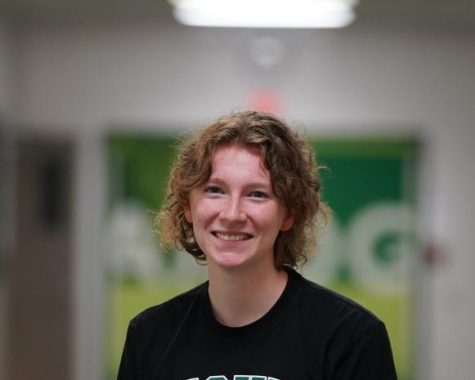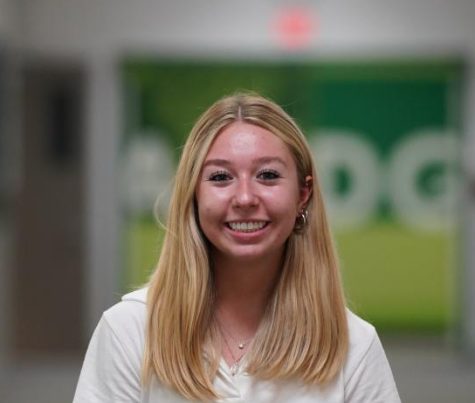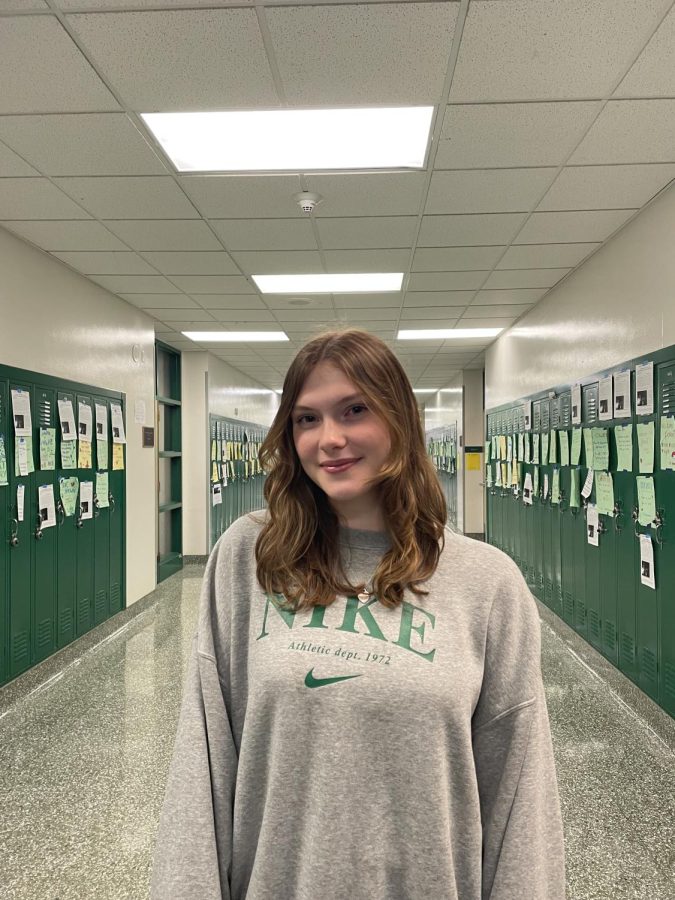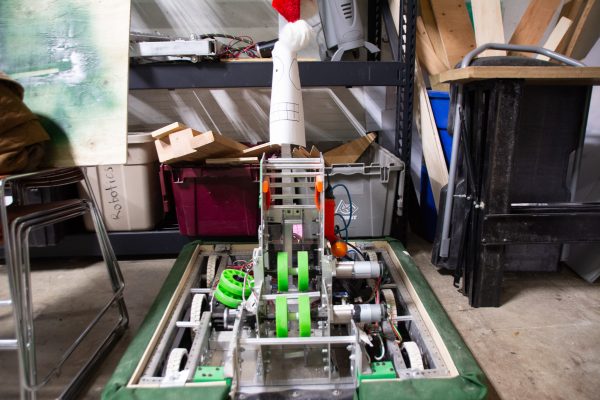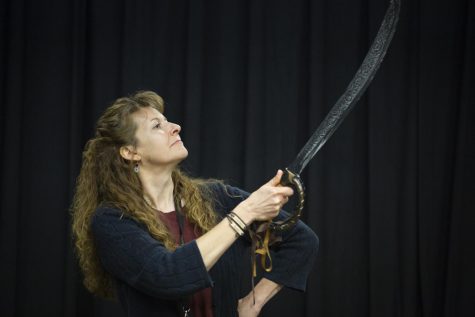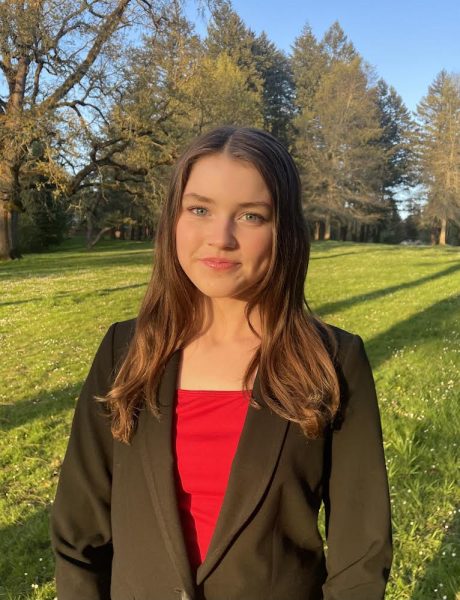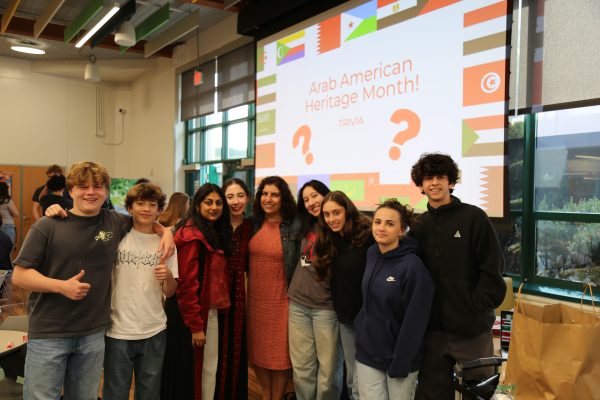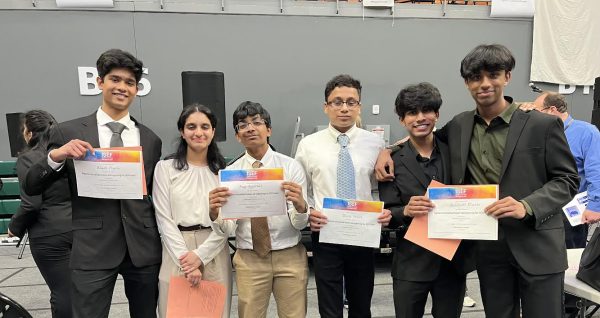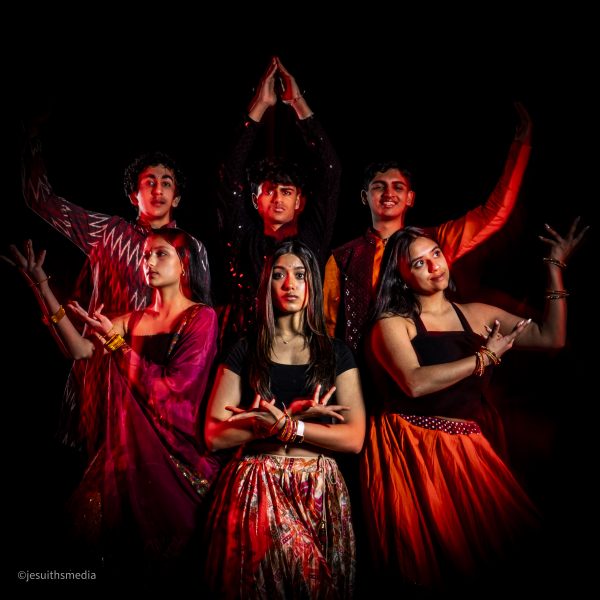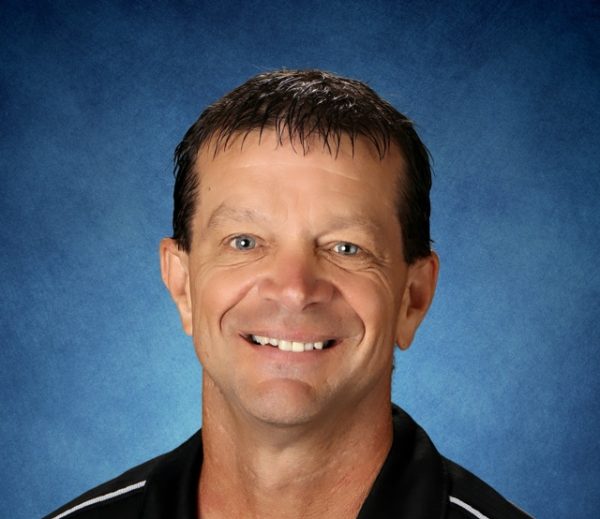The Hurtado Center Supports Immigrants’ Sights on Citizenship
Jesuit students, like Rowen Daugherty, can volunteer at the Hurtado Center to help in the pursuit of citizenship.
7 pm at Jesuit. Except for a few stray students finishing up practice, most high school students have cleared out for the night, and the halls are empty. Despite the quiet, a few classrooms in Xavier Hall have come to life with multilingual conversation from a new group of learners.
Jesuit’s Hurtado Center is open Monday and Wednesday nights for adults in the greater Portland area. They gather for late night ELL (English Language Learning) and citizenship classes.
According to the Jesuit High School website, “Approximately 150 people from the surrounding Washington County area participate in evening ELL classes each year.”
Chely Castillo is the Hurtado Center’s coordinator. She organizes English lessons and the Jesuit students who volunteer at the Center.
Since its founding in 2001, the Hurtado Center has primarily supported the immigrant community. The Center provides its students with English language skills so they can pursue higher education, citizenship, or a career.
“Our main goal at first was English classes, so we teach them survival English. We are kind of like the stepping stone for them to go on to PCC or for those that want to go pursue higher education,” Castillo said.
Part of being this stepping stone is cultivating a positive introductory space to ELL classes. Community college classes can be large and faster paced. If a learning environment is overwhelming and unfamiliar, many students struggle to grasp the topic.
“That’s the beauty of our program—that we are able to use more one-on-one from our Jesuit students that come and volunteer so that they can feel more comfortable in a smaller classroom setting than PCC or other community college classes,” Castillo said.
The Hurtado Center is an environment that allows students to approach language classes at their own pace. This leaves them empowered to continue learning.
To continue their own learning and community service, Jesuit students have the opportunity to volunteer at the Hurtado Center. Some complete their sophomore year service project at the Center while others finish additional hours for their junior and senior projects.
Senior Rowan Daugherty volunteered at the Center to wrap up the CRISPAZ El Salvador immersion. She came away with an appreciation for the experience.
“This really opened my eyes to a different form of service than what I ever expected to do,” Daugherty said. “I never thought that I could be able to help teach someone in a way that turns out to be so valuable.”
Some might assume Hurtado Center volunteers like Daugherty are fluent in Spanish. However, this is not the case. Although speaking Spanish is helpful, it is not a requirement, as the Center serves a variety of immigrants.
“The majority of our students are Latinos right now, but we have had students from all different parts of the world in the past, and there were times where using Spanish was very limited because not everyone in the class spoke Spanish,” Castillo said. “This is open to the immigrant community. This is multicultural.”
To support this diverse group of students, a diverse group of volunteers is needed.
“I think a lot of students are worried about their Spanish skills and feeling like they wouldn’t be able to help, but students who participate have ranged from AP Spanish students to kids who have never even gone past freshman Spanish,” says Daugherty. “No matter what skill level you have, you are able to help.”
To support volunteers, Castillo trains them in many different techniques used to teach ELL. The Hurtado Center specifically relies on repetition and a more conversational approach.
“We do a lot of dialogue and repetition of the words and help them with the pronunciation,” Castillo said.
Working one-on-one with the volunteers and dedicating many evenings to practice, the Center’s students come away with ELL skills that help them in daily life and continue to support their aspirations.
In addition to ELL classes, the Hurtado Center offers citizenship preparation classes. Although this program was added in 2006, the Center pivoted to focus heavily on citizenship during the pandemic.
“We focused more on citizenship because there weren’t many other places offering citizenship, but our main focus was English and GED,” Castillo said. “So it just depends on what the needs of the students are during that term.”
Achieving U.S. Citizenship is a goal for some migrants, but it is not a completely seamless process.
Undocumented migrants travel without a visa from their home country. Although not ideal to travel without this documentation, many are fleeing imminent danger and must migrate immediately.
Once in the United States, these migrants can file for a green card or seek asylum. Both of these options can eventually lead them to permanent residency or U.S. citizenship. However, the fear of being caught and deported and other factors often inhibit their ability to pursue this.
One recent issue specifically affecting migrants living in Oregon, is that of the documentation needed to obtain a driver’s license. Prior to 2008, Oregon allowed anyone, without proof of legal residence, to obtain a driver’s license. It reversed this law in 2008 to comply with the nationwide security measures taken after 9/11.
For migrants living in rural areas, where having a car is necessary, this reversal caused many to move to Washington, where they could obtain a license without having to present their permanent residency status.
Access to drivers’ licenses affects students at the Hurtado Center as well.
“Sometimes there were moments where we would have at least 25 students taking a citizenship class and the numbers started to drop when licenses were not available anymore in Oregon for people who were undocumented,” Castillo said. “Students migrated or moved to Washington where licenses were available.”
The decisions the state of Oregon made not only caused these undocumented individuals to migrate further, but also made it more difficult for students to attend their ELL and citizenship classes through the Hurtado Center.
In January of 2021, the state of Oregon returned to allowing anyone, with or without proof of permanent residency, to obtain a driver’s license, supporting undocumented immigrants in the process.
Despite challenges like these her students face, Castillo has many hopes for the future of the Center—recruiting more student volunteers as well as reintroducing parent volunteers are goals she hopes to accomplish.
“I want to be able to build the program back to where we were before the pandemic to offer ELL and maybe invite some of our Jesuit parents to help me teach the class. They were the ones in the past who were helping teach the class,” Castillo said.
Although she has many responsibilities to juggle, Castillo has found fulfillment and joy through her work as the Center’s coordinator.
“To see their eyes sparkle up when they understand something in English,” Castillo said. “There have been students who have started survival English here and have gone on to higher education and maybe gotten their Associates. To just see them better their English is very rewarding.”
After almost 6 months of volunteering, Daugherty values the relationships she has formed through the Center.
“Watching them learn and knowing that I was part of that process is such a rewarding feeling, especially when the ones you are helping teach feel more like friends,” Daugherty said.
The Hurtado Center is open every Monday and Wednesday from 7-9pm. Contact the Arrupe Center for Justice for additional information and to sign up to volunteer.
